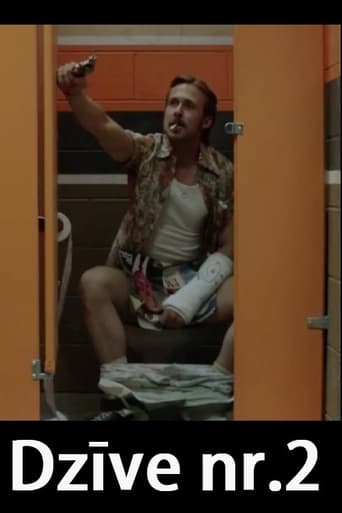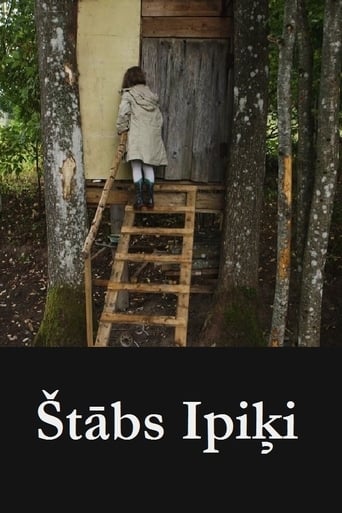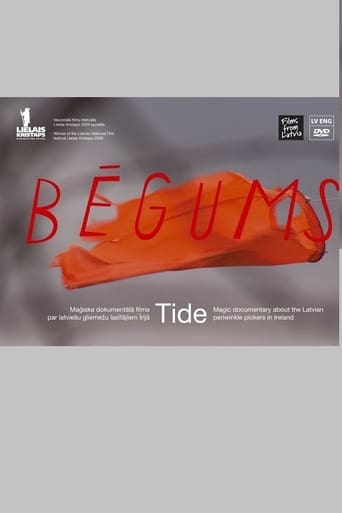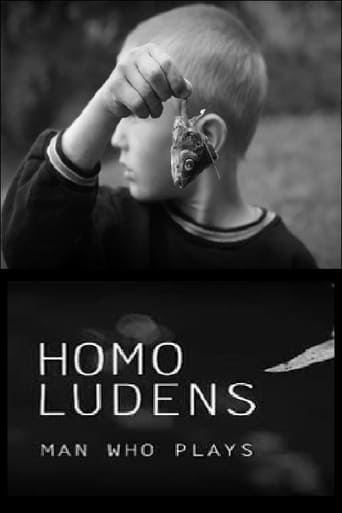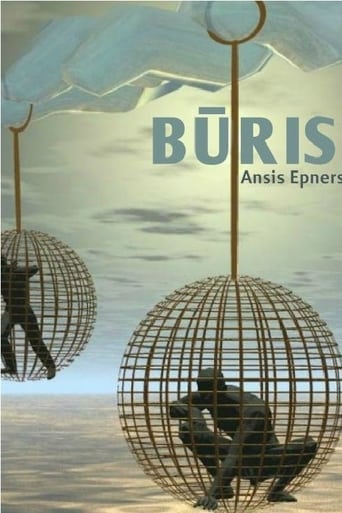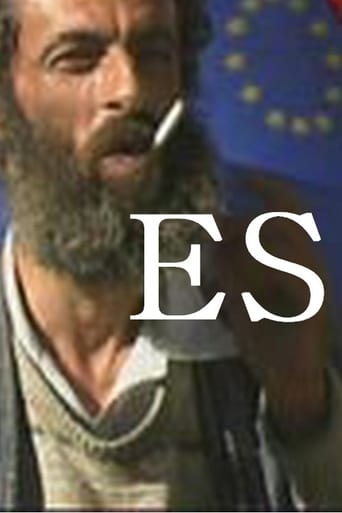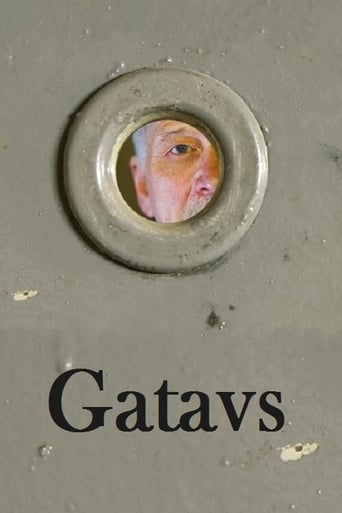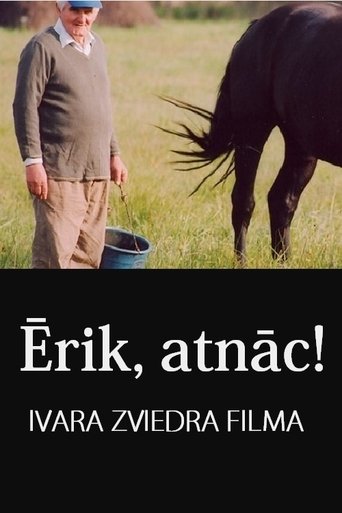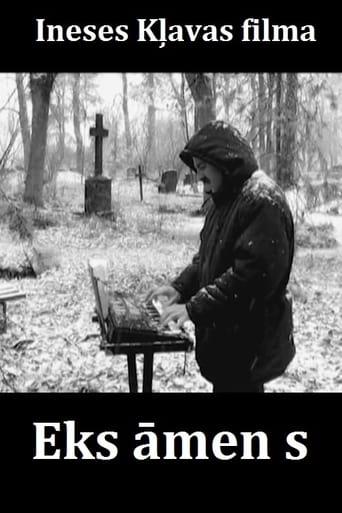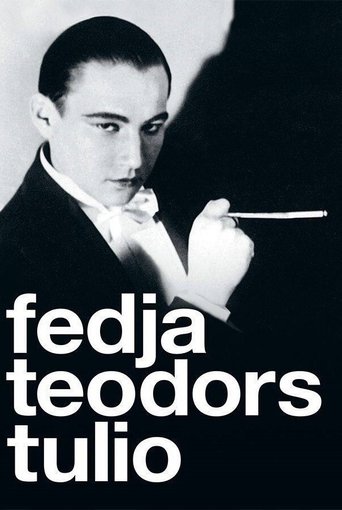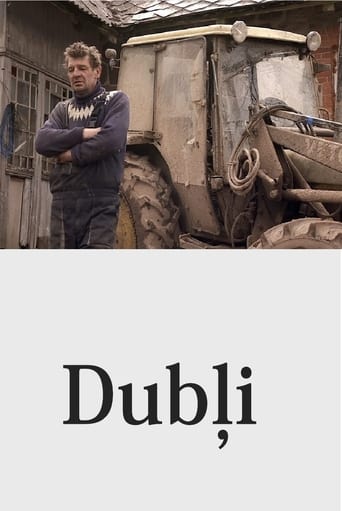Anša Epnera studija AVE
Vaira smaida 2007
Latavio, or Life Nr. 2 1997
An omnibus film consisting of ten parts, each directed by a different young director from the Latvian Academy of Culture. The unifying element of the ten shorts is the place where they take place - the airport. A lot can happen there - including a strike by a comet, a malicious attempt to break havoc by passengers, or an exploration of the old airport guard's house where not a lot has changed since the collapse of the Soviet Union. The film consists of the following parts: A Mishap (Nediena) by Arta Biseniece, Blurp (Šļurp) by Aija Bley, Alien Sky (Svešās debesis) by Viesturs Kairišs, 5 Versions (5 versijas) by Dzintars Krūmiņš, Comet (Komēta) by Māra Liniņa, Cleptomania (Kleptomānija) by Andis Mizišs, Alfredo's Poetry (Alfredo dzeja) by Igors Varenieks, Little Hand (Mazā roka) by Ilze Vidauska, Comet 2 (Komēta 2) by Anna Viduleja, and Life No. 2 (Dzīve nr.2) by Kristīne Želve.
Documentarian 2012
Inta is a brusque, crusty woman who lives alone on the edge of a picturesque marsh. One day her solitude is intruded upon by the arrival of a documentary filmmaker. In his eyes Inta is an outstanding would-be film protagonist but the wild woman would rather put a curse on the importunate intruder than let herself be filmed. But the filmmaker's persistence finally succeeds in melting the ice of Inta's heart... just in order to break it soon afterwards.
Treehouse Ipiķi 2013
A group of children from the capital city of Riga arrive in the small border village of Ipiķi. The townsfolk immediately know that "they aren’t locals, they’re from the capital. You can tell by the way they dress.” The differences between the city and rural children are quite evident. While the country children nimbly climb trees, play games with knives and axes, and hide in their self-made tree house, the city children buy sweets in the town store, hoping to buy the goodwill of the local children. However, gaining entry into the tree house is not so simple.
Tide 2009
People escaping from home. Escaping to a better life. Escaping from themselves to a globalized world. Over the last years, tens of thousands of Latvians have left Latvia in search of a better life in Ireland. This film reveals the way some of them live, far abroad from home and their families: their desires, emotions, life conditions and relationships.
Homo Ludens. Man Who Plays 2014
A young boy likes to play anywhere and anytime, with anything that is handy. A poetess plays with words, a composer with sound, and a filmmaker with images, the result of which is a cinematic poem that motivates the viewer to remember his Homo Ludens.
The Cage 1993
Edmunds Berzs is an architect who has achieved a comfortable life, but this causes him unease, so he decides to go to the country house where his mother lives. There he wakes up to find himself locked in a cage in the middle of the forest. Edmunds, paradoxically, finds the tranquility he was looking for.
Komēta 2. Dzīve nr.2 1997
eu 2004
It's Latvia on the 20th of September, 2003 - the day of the referendum about joining the European Union. On the day of the referendum, twelve Latvian film directors of different generations portray twelve different characters across the country. Their life stories and environments affect their decision of voting “for” or “against”.
Mazpilsēta 2002
Kamēr... 2005
Ready and Done 2006
Sigurds operates a hundred-year-old lift in a large hospital in Riga, absorbing the sounds of daily hospital life while between floors. Meanwhile, in the adjacent shaft, a new, automatic lift is being installed.
Rīga 2007
Get Lost 2005
In the godforsaken land on both sides of the Latvian-Estonian border people are awaiting "the coming of Europe" in candlelight with no electricity. This film paints the difference between urban consciousness and simpler rural values.
Ex-Amen 2005
A struggling actress, a teacher, a former seaman, a policeman and a veterinarian all have a common line of work – conducting funerals. For one it’s a passion, for one a duty, but for another it’s a chance to earn a little extra...
Fedya. Theodor. Tulio 2011
It’s discovered by chance that legendary Finnish film director Teuvo Tulio came from a remote village in Latvia near the Russian border. During his childhood he was known by the Russian nickname, Fedya. The local authorities immediately place a memorial stone in his honour, but the local peasants are confused and even angry about the unwanted publicity and guests. They have neither heard of Teuvo Tulio, nor seen his films...
Dziesmusvētki 2003
The Latvian Song festival captured from an unusual angle - literally and figuratively. Faces and legs of singers, listeners and dancers, close-ups of details and moods. In the final four minutes of the film, the 294 place names - cities, parishes and villages of Latvia and the world - are called, that the participants of the XXIII Latvian Song Festival come from - "...Cīrava, Code, Chicago, Dagda... Mālpils, Malta, Mārupe, Moscow... Sēlpils, Sesava, Sydney, Sigulda... Palsmane, Pampāli, Paris, Pāvilosta..."
Mud 2010
Latvians think through mud and view the world through a “muddy” filter. Where does the mud come from, and why does it invariably remain: in this country, this language, and in our souls? Mud doesn’t just appear from tears falling upon dry earth. Mud also comes from spillover, done out of joy. And the mud itself creates happiness and inspiration for new mud.

